Leah Libresco's Blog, page 8
January 4, 2021
Books I Plan to Read in 2021
Last year, I had a baby… and finished all the books on my 2020 list! (With the caveat that my husband and I took up Cardinal Sarah’s The Day is Now Far Spent as our shared Sunday readaloud book, so I get a pass since we’re reading it slowly together).
All in all, I read 119 books (36.5k pages)—which doesn’t count readings of e.g. Guess How Much I Love You (which is really two books, since we’re on our second copy after the baby gnawed holes in the first).
The oldest books I read were St. John Chrysostom’s On Wealth and Poverty, Dostoyevsky’s Demons, Jane Eyre, Mansfield Park, and My Antonia.
As for this year, the eleven books I’m prioritizing are:
The Friendship of Christ by Robert Hugh Benson On the Prayer of Jesus by Ignatius Brianchaninov Fake Heritage: Why We Rebuild Monuments by John Darlington Shapeshifters: A Journey Through the Changing Human Body by Gavin Francis Peace and Penance in Late Medieval Italy by Katherine Ludwig Jansen Mr. Gatling’s Terrible Marvel: The Gun That Changed Everything and the Misunderstood Genius Who Invented It by Julia Keller Tom Stoppard: A Life by Hermione Lee Uprooted: Recovering the Legacy of the Places We’ve Left Behind by Grace Olmstead The Fabric of Civilization: How Textiles Made the World by Virginia Postrel Gunpowder & Glory: The Explosive Life of Frank Brock OBE by Harry Smee and Henry Macrory Perfectly Human: Nine Months with Cerian by Sarah C. Williams
December 31, 2020
My Favorite Books of 2020
These are my favorite books I read in 2020, listed in roughly chronological order. Nearly all of them were read as ebooks, many as library books, as I (initially) read with a sleeping newborn on my lap and (later) read standing up, ready to run to pluck our adventurous baby off the stairs.
I rely on Library Extension to remind me what’s in my local card catalog and then, not infrequently, scribble down page numbers to transfer dog-ears to the copy of the book I’ve ordered to keep.
And, of course, I do recommend my own books: Arriving at Amen, the story of my conversion of intellect, which was followed by a conversion of the heart and habits. And Building the Benedict Option, my handbook for building thicker Christian community over the next two weeks to two months (no waiting for some future ideal!).
Finally, I’ve started a substack, Tiny Book Club, which functions as, well, a tiny book club. Every month, I host a discussion of an excellent article or essay, and we all get to sit with it for a sustained conversation. Plus, I invite in a guest I admire to join us.
Now, on to the books!
Listening for America: Inside the Great American Songbook from Gershwin to Sondheim by Rob Kapilow
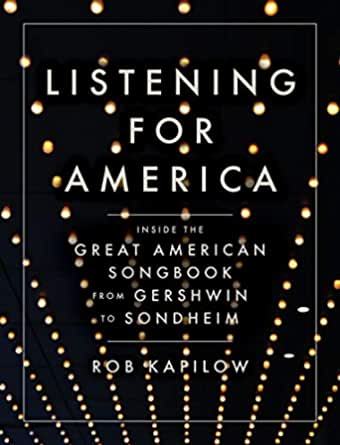
A very delightful Christmas present, read a chapter at a time throughout the year. As I wrote in my review for Fare Forward:
Reading Kapilow took me one step further into appreciation. He has a gift for worked examples and teaches by rewriting the songs he’s showcasing. He changes just one small detail at a time to show how it supports the song. He might remove a bluesy swing, a shift up the octave, a chromatic note, to come up with a more pedestrian variant he calls the “Kapilow version.” None of his rewrites have a wrong note, but they lack inventiveness.
Playing his rewrites side by side with the originals, you can hear how the expected version might sound good enough, but the real version is sublime.
A Paradise Built in Hell: The Extraordinary Communities That Arise in Disaster by Rebecca Solnit

I picked up this book for exactly the reason you expect, and read it as we watched the copper tape we’d put on our doorknobs slowly verdigrise—a preparation for the wrong kind of pandemic. Solnit’s stories of solidarity and compassion helped guide our family as we built a mutual aid listserv for our block (and joined the larger one for our whole town).
I relied on her examples when writing for Comment on “Locating Our Invisible Wounds” and how we can sustain the solidarity of emergencies in more ordinary times.
Entangled Life: How Fungi Make Our Worlds, Change Our Minds & Shape Our Futures by Merlin Sheldrake
The Book of Eels: Our Enduring Fascination with the Most Mysterious Creature in the Natural World by Patrik Svensson
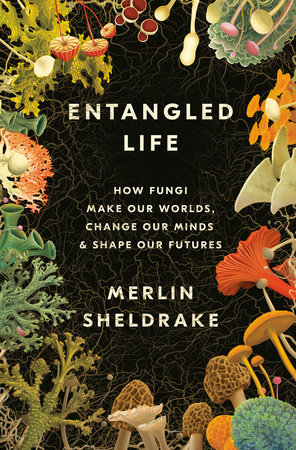
These were the two books I was most stymied in persuading other people to let me give them as gifts. Not even when I mentioned that Merlin Sheldrake (that name!) grew mushrooms on his own copy of his book and then ate them, or when I discussed how no one has actually seen the part of the ocean where eels mate (we just have a rough guess by mapping progressively smaller eels) did a certain member of my family agree to let me give her either for her birthday.

Both books were delightful and standouts in the genre that my husband has identified as my favorite: “biographies of things that aren’t people.”
Empires of the Sky: Zeppelins, Airplanes, and Two Men’s Epic Duel to Rule the World by Alexander Rose
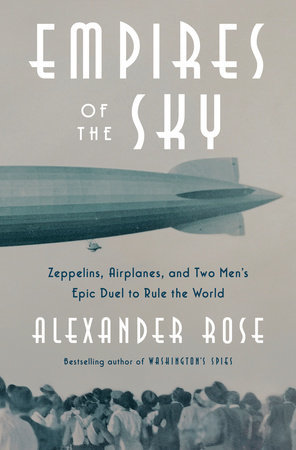
Another entry in that genre, and a good reminder of how what is “inevitable” in retrospect is fairly unpredictable in the moment. When planes and airships were being developed, it was airships that had the obvious advantage and airplanes that seemed like a folly. It took leaps in engine technology for airplanes to become remotely plausible as a commercial endeavor. It makes you wonder what reversals are lurking a dozen years down the line for us.
It’s also a fascinating paired portrait of Count von Zeppelin and Juan Trippe, two men with an unshakable confidence in the world they could imagine and real logistical competence to bring to bear on their vision. In some ways, this was pandemic reading too—a sharp contrast with the US’s unambitious public health response.
Into the Deep: An Unlikely Catholic Conversion by Abigail Rine Favale
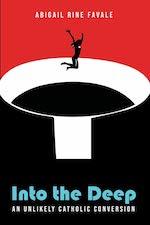
Favale’s memoir is sharply observed and thoughtful. She was one of the inspirations for the Other Feminisms substack community I started this year—focused on fostering a culture of interdependence, not autonomy. I became interested in Favale after reading her essays at Church Life Journal, so I’ll offer a link and a quote.
The traditional feminist solution to the “problem” of female biology is unfettered access to contraception and abortion: this reveals an ironically masculine bias. Rather than seeking to change social structures to accommodate the realities of female biology, the feminist movement, since its second wave, has continually and firmly fought instead for women to alter their biology, often through violence, so that it functions more like a man’s. Tellingly, the legal right for a woman to kill a child in her womb was won before the legal right for a woman not to be fired for being pregnant. The message is clear: women must become like men to be free.
The Weil Conjectures: On Math and the Pursuit of the Unknown by Karen Olsson
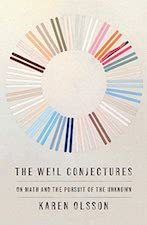
A thoughtful meditation on both Weils, Simone and André, the latter part of the Bourbaki collective in mathematics. Olsson really lives out the ideal of wrestling with the thinkers of the past that you’ll hear more about in two more recommendations. Simone Weil is alive with moral urgency and desperately seeking some kind of martyrdom—she wants to be utterly consumed by doing right. André finds a safer and more acceptable way to be swallowed up by truth.
The Color of Law: A Forgotten History of How Our Government Segregated America by Richard Rothstein
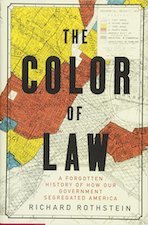
A clear, thoroughly-cited explanation of how racial housing discrimination is part of our recent past and has serious consequences for the present. It is a persuasive case for reparations.
Breaking Bread with the Dead: A Reader’s Guide to a More Tranquil Mind by Alan Jacobs
Lost in Thought: The Hidden Pleasures of an Intellectual Life by Zena Hitz
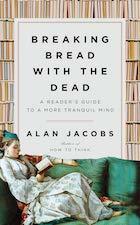
Two books that both came out this year and seemed to be in dialogue. My husband reviewed Breaking Bread for Fare Forward:
For those of us already sold on dead authors, Jacobs has a different caution: not to idealize the past or reshape it in our own image, but allow ourselves to encounter it in its strangeness. […] Jacobs’s preferred metaphor is a wrestling match—specifically the biblical Jacob’s tussle with God and his subsequent demand that God bless him: “I will not let you go until you bless me” (Gen. 32:26). From this passage Jacobs concludes that struggle and demand are not incompatible with reverence. The classics, then, can be our sparring partners.
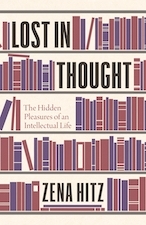
The image of wrestling with a text in order to receive a blessing has really stuck with me. Meanwhile, Hitz’s book is focused on praising the impracticality of the intellectual life. She rejects pitches for the humanities that turn on how much more employable it makes you. The best encounters are sought with no ulterior motive. (I don’t think I agree with this.) Both Hitz and Jacobs are notably good-faith interlocutors.
Piranesi by Susanna Clarke
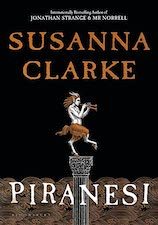
There are books I read this year that left me short-tempered while reading. A too-aggressively paced thriller, a dystopia that seemed more the fault of the author’s spleen than a living world. I put them down and wanted to shake myself and shake them off like a dog does after a bath.
Piranesi was the opposite. It’s the book that I found most restful to read, even as I was in suspense about the plot, and the book where I most felt like I was gentler while reading it.
It’s as rich a world as Clarke’s Jonathan Strange and Mr. Norrell, but, as Joy Clarkson says in her review for Plough, “Where Jonathan Strange might be compared to an imperious baroque mansion, Piranesi is an intricately painted miniature.” Trust me on this one.
The Space Between Worlds by Micaiah Johnson
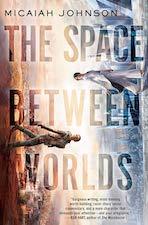
This novel combines tight plotting, and fantastic worldbuilding. The premise is that travel to parallel worlds is possible, but only if you are already dead in the world you’re travelling to and your slot is open. That makes the most valuable people the ones who were treated as discardable and have died almost everywhere. Every choice made by Johnson is well considered, and she gives the peripheral characters enough life for you to believe they are always active, even when not in the narrative spotlight.
Raising a Rare Girl by Heather Lanier
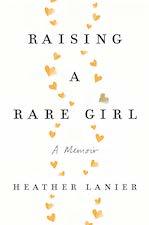
Lanier’s first child, Fiona, was born missing part of a chromosome, and Lanier’s memoir is a meditation on disability and dignity. It was tough reading for me, especially because so often doctors and social workers treat Lanier as a bad mom (prior to the diagnosis) and, once the underlying cause of Fiona’s issues is known, they shift to treating Fiona as discardable. “It’s either bad seed or bad soil,” one doctor tells Lanier while she’s still recovering from birth.
Lanier’s book is a rebuttal to both claims, and one that avoids defending her daughter by telling a story of triumph over disability and difference. Fiona overcomes some challenges but some things are truly out of reach for her. She doesn’t earn her worth as she expands what she can do—she is of infinite worth, just like Lanier, just like you, simply because she is. The doctors who dismiss her miss the chance to see her and know her as Fiona. The reader does not.
I would link to last year’s list, but it looks like I may not have compiled one since 2017, so here’s the link to all the way back then.
December 11, 2020
All Aboard the Generation Ship!
Nearly a year into the pandemic, I wrote an essay for Breaking Ground on how we can persist in hope by drawing on sci-fi stories of generation ships.
A generation ship spans the wide gap of time between planets. No one aboard at the beginning of the journey expects to see the destination. They commit to the ship in order that their children, or their children’s children’s children will see and reach the promised end.
Delivering on the promises of a generation ship requires committing to specific practices of stewardship. And whether you’re safeguarding a ship or a community, the core practices remain the same.
I discuss a few lessons from these stories and how we can adapt them to our non-spacefairing time. Including:
Weave Essential Knowledge into All Parts of Life
The same is true in our own lives. Whatever is most important should be before our eyes and knit into our bones. If you can’t see the people you love, hang up their pictures in your house, and schedule a monthly phone call. If it isn’t safe to gather for worship, make your home a place of contemplation, hanging up religious art. You may already begin meals with thanksgiving, but where else should your daily routine include an invitation to be with God?
Look over your usual days and ask, What instruction have I laid out for myself? Do I want to become the person I’m implicitly teaching myself to be? Revise accordingly.
December 10, 2020
Discussing Illiberal Feminism with Plough
I joined Susannah Black and Jennifer Frey for a discussion of Illiberal Feminism, hosted by Plough.
The conversation was sparked, in part, by my article “Dependence,” in Plough. Here’s an excerpt from that piece:
It always confuses me that illiberalism is taken as a belligerent ideology – both by its detractors and some of its proponents – as though it were rooted in strength and prepared to wield that power against others. It is contemporary liberalism that begins from an anthropology of independence, and presumes a strength and self-ownership we do not in fact possess.
The best corrective the growing illiberal enthusiasm can offer is not a rival strength – no fist clenched around a flagpole of any standard. Instead it must offer a re-appreciation of weakness – the kind I see in the chubby, fumbling fingers of my daughter, reaching out to her parents.
December 5, 2020
Sing Out, America! An appreciation of Listening for America
One of my favorite books I read this year was Rob Kapilow’s Listening for America, a tour through the genius of American musical theater. I was delighted to get to write an appreciation for Fare Forward.
Reading Kapilow took me one step further into appreciation. He has a gift for worked examples and teaches by rewriting the songs he’s showcasing. He changes just one small detail at a time to show how it supports the song. He might remove a bluesy swing, a shift up the octave, a chromatic note, to come up with a more pedestrian variant he calls the “Kapilow version.” None of his rewrites have a wrong note, but they lack inventiveness.
Playing his rewrites side by side with the originals, you can hear how the expected version might sound good enough, but the real version is sublime. […]
The composers build up their songs layer by layer, so that each small choice is marked by how it harmonizes with what has come before. I can’t capture the chord by having a friend guide my fingers to ring out those final measures in isolation.
Our institutions and connections to each other are similarly built piece by piece. Here, my mistake of trying to play just the finale looks a little different. We try to remix or excerpt the cultural traditions that have sustained us, pulling out the single element that seems necessary. But, cut from the full tapestry, it unravels in our hands.
November 25, 2020
Defending Dependence
My essay, “Dependence: Toward an Illiberalism of the Weak” is part of Plough‘s Family issue. Everyone is dependent (at least some of the time) but women have a much harder time than men pretending not to be. Hiding dependence hurts us all.
On January 21, I’ll be joining Ross Douthat, Sarah C. Williams and Peter Mommsen for a Plough-hosted event on Douthat’s piece in the issue “The Case for One More Child.”
So long as we are not currently weak in body, we are tempted to view ourselves as whole. In the absence of visible blemish, we blunt our longing to become whole. And, lest we be tempted to consider the truth, we need only look at how far from us we have pushed those who are weak. We imagine that we can’t possibly be discardable, like they are, and therefore our souls must be unspotted.
A society that cannot imagine placing the weak at its center, that forgets that society exists for the weak, will be drawn towards the Manichaean modes of cancel culture. We see sin but not grace – we try to find and throw out the bad apples, whom (we think) no one can restore to righteousness. Or we see ourselves mirrored in the most notorious sinners, and work to deny sin, since we don’t want to be cast out with them.
[…]
To give an honest accounting of ourselves, we must begin with our weakness and fragility. We cannot structure our politics or our society to serve a totally independent, autonomous person who never has and never will exist.
Read the whole thing at Plough
And continuing conversations on this kind of topic is why I’ve started a new newsletter, Other Feminisms, for discussing the dignity of dependence.
October 28, 2020
Discussing Evangelization with Bishop Barron
In my day job, I was very happy to get to facilitate a conversation between Bishop Barron and the students of Princeton University. The event was hosted by the Aquinas Institute for Catholic Life at Princeton, and Bishop Barron fielded student questions about their challenges in evangelization for an hour.
October 24, 2020
Bridging the Divide Within Feminism
At Newsweek, I’m discussing some of the tensions within modern feminism, and where we can find common ground across the abortion divide.
Women are divided over how to respond to a world that treats us as defective men. Do we try to elbow our way in by adjusting our lives to a norm that may not fit us—bringing in a lap blanket, dropping apologies from our speech or freezing our eggs to delay childbirth? Or do we fight to reject or broaden the norm? Both tactics have their place, but the latter is the more powerful. Often, expanding the norm benefits men, too, who may have found themselves chafing under narrow expectations.
Some of the divisions between mainstream feminism and what Ross Douthat describes as the “conservative feminism” symbolized by Amy Coney Barrett come down to how women respond to the Procrustean pressure to fit uncomfortable norms patterned on men, especially as they pertain to fertility and childbirth.
For instance, are women aiming to overcome our biology to achieve the same liberty as men—to only live as a parent through an active, affirmative choice? Are the burdens of pregnancy a design flaw we aim to overcome, whether through gestation in Brave New World-style artificial wombs or through classifying pregnancy as “care work” and hiring other women to do it—following the model that shifted elder care to poorly compensated, overworked women?
You can read the whole thing at Newsweek.
I’ve also set up a listserv (Other Feminisms) for people who feel like an awkward fit in mainstream feminism but who want to advocate for women. It’ll be a motley crew, but here’s how I see our aim:
Often, our equality is premised on remaking ourselves to be more like the median man, whether that means changing our style of speaking to exclude apologies, changing our breastfeeding plans to keep up with work’s minimal accommodations, or changing our bodies to suppress fertility and destroy our children.
We say no, and that, instead, the world must remake itself to be hospitable to women, not the other way around. That means valuing interdependence and vulnerability, rather than idealizing autonomy.
If you’re interested, you can sign up here.
October 2, 2020
Cheering on Superman Smashing the Klan
My husband and I were guests together on God and Comics to talk about Gene Luen Yang’s Superman Smashes the Klan. The book is great, and I really enjoyed talking about it with the three nerdy clergymen of God and Comics.
Yang is updating a Superman radio serial (“Clan of the Fiery Cross”), which was based on the reports of a reporter undercover in the KKK. Stetson Kennedy shared the secret practices he observed, and when they were woven into Superman’s story, they helped weaken the Klan’s recruitment efforts.
In the the original story, Superman defends a Chinese-American family from the Klan’s persecution, and Yang expands the depth of the Lee family. To preview our podcast, I’ll just mention two themes Yang weaves in well.
He tells the story of a Klan that is a mix of true, hateful believers and cynical grifters—and the second is wickeder.
He keeps front and center Superman’s particularly American story—someone who was not born here, but who became American when his parents sent him to our country for refuge.
Finally, I can’t discuss Yang without mentioning how much I love his Boxers & Saints duology. I strongly recommend it.
September 29, 2020
‘Cuties’ Is Dangerous, Even If It Wasn’t Meant To Be
At The American Conservative, I’m talking about why visual representations of exploitation are almost always pulled into a kind of exploitation themselves.
The initial advertising for Cuties presented the hypersexualization without any hint of critique. It showed the young actresses in provocative poses, and made it appear that the intended audience for the film was people who wanted to see prepubescent children sexualized.
To an extent, Netflix was right about the audience—though the goal of Maïmouna Doucouré, the writer and director of the film, was to unsettle these people, not titillate them. She drew inspiration for the story when she was shocked and sickened by seeing a group of eleven-year-old girls perform risqué dances. She interviewed pre-teen girls to make her film, learning from them the double pressure they felt: first, to exploit themselves for social media attention and second, to call their experience of exploitation liberation.
I’m very sympathetic to her critique, and I appreciate that she grounded her film in real experiences, but I’m profoundly skeptical of offering that critique through film. Critiquing hypersexualization through visual art is very difficult. How can you show the exploitation of a child to critique the exploitation of children? How can you expose the ugliness of a culture that’s entered the mainstream without being even uglier than what people have already acclimated themselves to?
I go on to discuss the show I love that arguably glamorizes what it criticizes: Stephen Sondheim’s Assassins. You can read the whole piece at The American Conservative.



